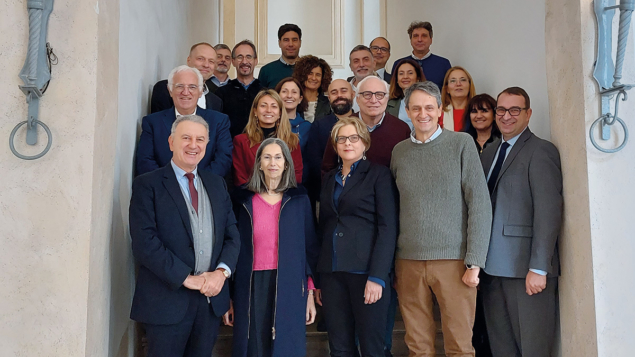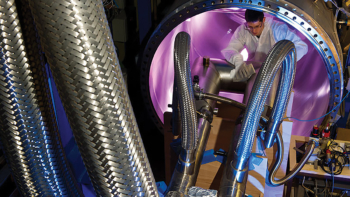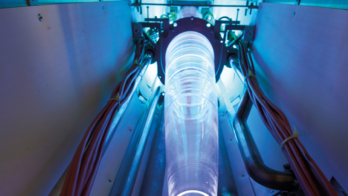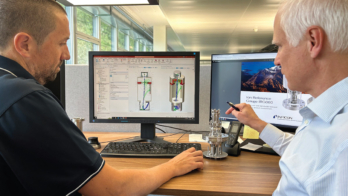
Developing high-temperature and high-magnetic-field superconducting technologies both for societal applications and next-generation particle accelerators is the goal of a new project in Italy called IRIS, launched in November and led by the INFN. IRIS (Innovative Research Infrastructure on applied Superconductivity) has received a €60 million grant from the Piano Nazionale di Ripresa e Resilienza to create a distributed R&D infrastructure throughout the country. It will focus on cables for low-loss electricity transport, and on the construction of superconducting magnets with high-temperature superconductors (HTS) in synergy with R&D for the proposed Future Circular Collider (FCC) at CERN. The project is estimated to last for 30 months, with more than 50% of the funds going to laboratories in the South of Italy.
One of the main objectives will be the construction in Salerno of a large infrastructure that will host not only a superconducting connection line, but also a centre of excellence for testing future industrial products for high-power connections, with the aim of making high-temperature superconductors less difficult and less expensive to work with.
“With the IRIS project, Italy assumes a leading position in applied superconductivity, creating a real synergy between research institutions and universities, which will offer an important collaboration opportunity for particle physicists and those involved in the fields of superconductivity and magnetism,” explains IRIS technical coordinator Lucio Rossi of the University of Milan. “An aspect not to be overlooked is also the high educational value of the project, which will guarantee numerous doctoral and high-level training opportunities for about a 100 students, young researchers and technicians.”
The activities of IRIS will be coordinated by the Laboratory of Accelerators and Applied Superconductivity (LASA) in Milan, with many partners including the universities of Genova, Milano, Naples, Salento and Salerno, and the CNR Institute for Superconductors, Innovative Materials and Devices (SPIN).
“IRIS is a virtuous example of how basic research, and in this case particle and accelerator physics, can provide an important application in other science areas, such as the development of new materials for energy saving that is essential for the creation of high-power cables without dissipation and suitable for the needs of future electricity networks serving new energy sources,” says Pierluigi Campana of INFN Frascati, IRIS scientific coordinator.





